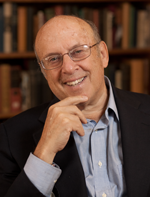
Jeffrey Carduner, Aesthetic Realism consultant, writes:
The current issue of TRO is “The World’s Opposites—in Books & Us.” A fresh, new way of seeing is here—surprising, logical, also delightful. Does every good book put together opposites that mix us up in our lives—for instance, feeling and logic? Does a “great book” put these together greatly? And with wonderful humor, this TRO shows us something else that’s unexpected: what in us interferes with our wanting to read a “great book.” There’s grandeur here, there’s meaning for each of us, and a very good time—all in the new issue of The Right of Aesthetic Realism to Be Known.
The commentary by Ellen Reiss begins:
Dear Unknown Friends:
We continue to serialize the culturally great, always immediate, supremely kind, often humorous 1972 lecture A Poem Is in the World, by Eli Siegel. In it, he speaks about three things: what constitutes those works called the Great Books, or classics; what an authentic poem is; and the world itself, in its unity and manyness. As he does, he is speaking too about things that are everyday and intimate for us: feelings and thoughts that we have, our inner tumult and mistakes. The basis of what he is teaching us—whether about Homer’s Iliad or a mood we were in yesterday—is this Aesthetic Realism principle: “The world, art, and self explain each other: each is the aesthetic oneness of opposites.”
It is a thrilling thing that Eli Siegel is able to show what a great book has which makes it great—and that as he does, those often intimidating things, the classics, feel friendly and close to us.
For instance, he speaks in the lecture about the opposites of feeling and knowing. In all art, those opposites are one. And in a great work—be it Virgil’s Aeneid or Kant’s Critique of Pure Reason—emotion and logic are made one widely, deeply, multitudinously. Well, we have feeling and thought all the time, but they often seem to fight in us. The Me that feels can seem apart from and at odds with the Me that tries to be exact. Yet—we can see these opposites together in a Virgil line, with its musical dignity and yearning. We can see them too in a pulsatingly reasoned idea of Kant. The more we know it is these opposites—reality’s and ours—we’re seeing, the more able we are to have them one in us. And we see the world itself as friendlier….Read more